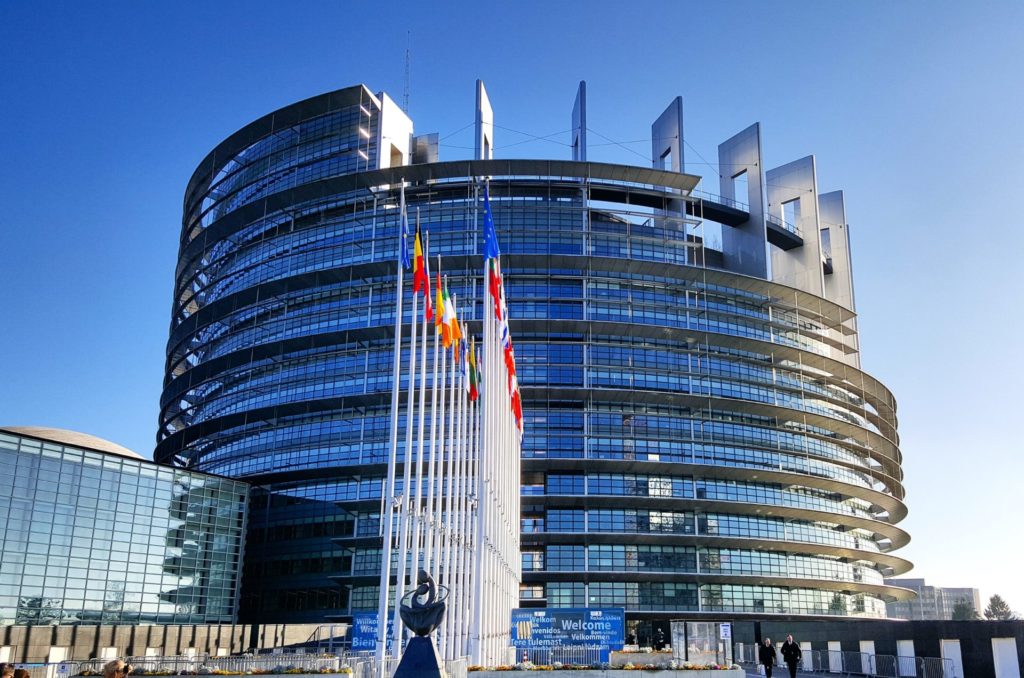The regions with their traditions, languages and different cultures are the foundation of a Europe that is united in diversity. European citizens should be aware of this important characteristic of their home regions - and help shape the EU more. Because: The EU is also the vehicle for the regions to have influence on European politics.
“Europe is not being built in Brussels, but in the regions” - many may no longer be able to hear this quote, but it has lost none of its topicality, on the contrary.
Why a Europe of Regions?
The regions carry the cultural heritage of Europe in them. Be it the different languages and dialects, clothing styles, cultural characteristics, or even culinary specialties. For vacationers’ reason to travel to other countries. For the residents there, everything that defines their history.
Preserving these achievements, which make up the diversity of a continent, is not folklore, but vital for a diverse Europe that is aware of its traditions and cultures and can therefore also be open to new and different things.
Nationalism and centralism destroy regional traditions
From centralized systems to dictatorial rulers, often uneducated cultural despisers, all too often attempts have been made to collectively prescribe a culture, a tradition or an entire "folk myth" from above and to push back, forbid or even extinguish regional traditions.
In 1934, Paneuropa founder Richard Coudenhove-Kalergi prophesied, in response to Hitler's Aryan myth, that one day “the peoples of Europe will come to the realization that they have been the victim of a monstrous deception. That the fact of their linguistic differences was misused by unscrupulous demagogues and megalomaniac semi-educated people to turn them against each other and threaten their common future."
There are enough examples in history of how regions developed across borders, separated by nationalism and ultimately often "reunited" again by European unification, mostly in the form of border dismantling.
United in diversity as a model for success
The European states have recognized that the right way is to allow diversity. “United in diversity” was established as the EU's motto in 2000.
Linguistic diversity is promoted and not subject to a single language. Every citizen can communicate with the EU institutions in one of the 24 official languages. Many large states would probably have no problem with it if their language were the only valid one in the EU. What a cultural loss it would be for Europe and especially for small states.
In addition to the official EU languages, there are over 60 other regional and local languages. Catalàn alone is spoken by more people than Austria has inhabitants.
However, strengthening regional and local diversity also requires a decentralized, higher-level structure. Centralized “top down” systems are less suitable for promoting regional and local diversity accordingly. Decentralization is therefore a key so that regions and local levels feel better integrated and represented and also take responsibility for “the bigger picture”. Countries like Switzerland or Austria are good examples. More recently, the successful decentralization reform in Ukraine should be mentioned here.
The misunderstood subsidiarity in Europe
Many critics of the EU would argue similarly. More decisions at the “lower level”, not “in Brussels”. But the conclusion they draw is the wrong one. The principle of subsidiarity, to which they often refer, by no means states that “nothing should be decided in Brussels and everything at the lower level”. And certainly not that the "lower level" is the nation state. Many critics of the EU want to attribute the decisions to this alone.
The subsidiarity principle does not emphasize that political competences in Europe only must be stored between “Brussels” and the states. It requires a matter to be regulated at the level at which it can be resolved most efficiently and best. And that includes not only the EU and the nation state, but the region, the community, the family and, first and foremost, the individual.
Europe protects diversity
The fact that the regions and municipalities have a certain influence in European politics is also thanks to their membership in the EU. For all the complications of the construction of the EU, the European Parliament and the European Committee of the Regions in particular create a regional presence in the legislative process.
Besides the Committee of the Regions, whose members are elected regional and local representatives, the European Parliament also consists of members elected directly in the regions (constituencies) who accordingly also represent their regions in their work.
`Honi soit qui mal y pense`
A rogue who thinks that it is just a coincidence that nationalist especially want to abolish or weaken the European Parliament, the only directly elected EU-institution.
Nowadays in a globalized world it is even more important that the regional and local leaders and citizens are also aware of their possibilities to network on a European level and actively contribute their wishes and concerns “to Europe”. This may work well in federal states such as Austria and Germany, where the regions and states have an official representation in Brussels and where are also European initiatives at the local level (European municipal councils in Austria), but it is not standard in every European country.
Thanks to the possibilities of the united Europe, these networks of regions and municipalities can be maintained and even strengthened. Because Europe is not being built in Brussels, but in the regions and municipalities.


